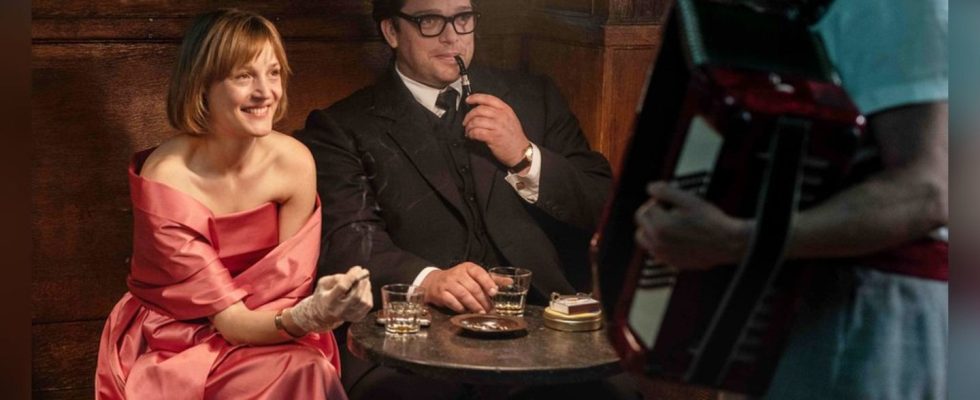“Ingeborg Bachmann – Journey into the Desert”
This is how the woman behind the literary prize loved
“Ingeborg Bachmann – Journey into the Desert”: Writer Ingeborg Bachmann (Vicky Krieps) and her Swiss colleague Max Frisch (Ronald Zehrfeld) meet in Paris in 1958.
© Wolfgang Ennenbach_MFA+_Alamode Film
One of the most important literary prizes was named after her. The biopic “Ingeborg Bachmann” tells of her love for Max Frisch.
Anyone interested in literature probably knows the Ingeborg Bachmann Prize. The prestigious award was given in 1976 in memory of the writer Ingeborg Bachmann (1926-1973) donated by her birthplace Klagenfurt. A year later, the annual awards began. In the biopic “Ingeborg Bachmann – Journey into the Desert”, which opens in cinemas shortly after the 50th anniversary of her death on October 19th, screenwriter and director Margarethe von Trotta (81) tells about the private Ingeborg Bachmann.
Who was Ingeborg Bachmann – and above all, how did she love?
In particular, it is about the Austrian poet’s passionate but also destructive love affair with the Swiss writer and architect Max Frisch (1911-1991, “Homo Faber”). Bachmann is played by the charismatic Vicky Krieps (40), the weighty, pipe-smoking Swiss writer Frisch embodies Ronald Zehrfeld (46).
When Bachmann and Frisch met in Paris in 1958, they had long been well-known stars in the literary world. However, it quickly becomes clear: “You will make me unhappy, but I will take the risk.” From 1958 to 1963 the two lived together first in his hometown of Zurich and then in their dream place of Rome. But her independence, his jealousy, artistic conflicts and the different attachments to home lead to a dramatic end to their relationship. The physically scarred Bachmann tries to come to terms with this ending with a self-discovery trip including group sex in the Egyptian desert of the title…
Intense examination of a complicated relationship
After an intro reminiscent of horror films, Margarethe von Trotta keeps changing time levels. On the one hand it tells the love story between “Bachmann & Frisch”, the film’s excellent working title, and on the other hand it tells the journey of processing. What is interesting at the beginning wears off a little over time, also because the relationship passages are more exciting.
Nevertheless, the film is worth seeing as a portrait of a couple who wanted to, but couldn’t, as they wanted – “This separation was the biggest defeat of my life” – worth seeing. This is also due to the fact that von Trotta talks about an independent woman who did not want to and could not fit into current social ideas: “Marriage is a completely impossible institution for a woman who works, who thinks and who wants something herself,” Bachmann complains to Frisch at one point. In another, she says: “Everyone had a tendency to loosen their natural brackets and then no longer find any support in the world.”
Vicky Krieps and Ronald Zehrfeld make an impression
“Ingeborg Bachmann – Journey into the Desert” may not be able to keep up with von Trotta’s biopic about the Jewish publicist “Hannah Arendt” (2012) with Barbara Sukowa (73) in the title role or with Maria Schrader’s (58) “Before the Dawn” (2016) about the Austrian writer Stefan Zweig (1881-1942, played by Josef Hader, 61). But he always leaves a lasting impression and with it a feeling for the woman behind the important literary prize.
This in turn is also thanks to Vicky Krieps and Ronald Zehrfeld. Even though his role is a bit woodcut-like in some scenes, it’s a pleasure to watch both of them play. Also notable are Basil Eidenbenz (30) as Bachmann’s friend, composer Hans Werner Henze (1926-2012), and Tobias Resch (born 1996) as desert companion and writer Adolf Opel (1935-2018). Ingeborg Bachmann was something of a muse for both of them, perhaps precisely because she made no secret of her loneliness: “I believe that all people talk past each other in all relationships. Basically, everyone is alone with their untranslatable thoughts and feelings.”

